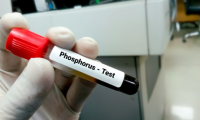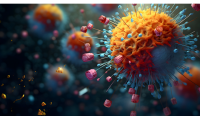-
After launch limitations, Johnson & Johnson exec touts manufacturing progress on CAR-T drug Carvykti
- Source: drugdu
- 561
- October 20, 2023
-
Ardelyx Nabs FDA Approval for First Phosphate Absorption Blocker in CKD
- Source: drugdu
- 304
- October 20, 2023
-
Ultimovacs Rebounds on New Universal Cancer Vaccine Data for Mesothelioma
- Source: drugdu
- 292
- October 20, 2023
-
Surgery to straighten a crooked septum more effective than nasal sprays, trial suggests
- Source: drugdu
- 371
- October 20, 2023
-
Amazon Starts Delivering Medications via Drone
- Source: drugdu
- 565
- October 20, 2023
-
Annual Family Premiums for Employer Coverage Increase 7%
- Source: drugdu
- 318
- October 20, 2023
-
Actym Therapeutics Extends Series A Financing with Additional $25.5M Closing
- Source: drugdu
- 319
- October 20, 2023
-
Thermo Fisher Adds Proteomics to Its Portfolio Through $3.1B Olink Acquisition
- Source: drugdu
- 530
- October 19, 2023
-
Air pollution linked to increased breast cancer risk in women
- Source: drugdu
- 487
- October 19, 2023
-
Novo Nordisk to buy KBP’s hypertension drug ocedurenone for up to $1.3bn
- Source: drugdu
- 449
- October 19, 2023
your submission has already been received.
OK
Subscribe
Please enter a valid Email address!
Submit
The most relevant industry news & insight will be sent to you every two weeks.

















